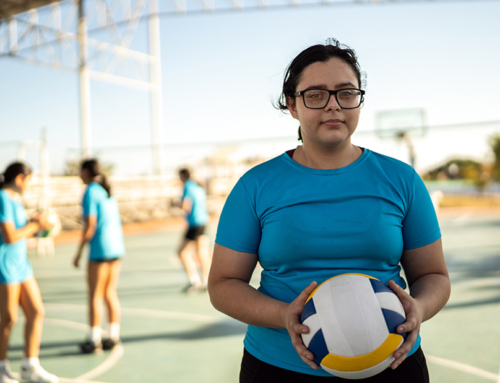In the world of sports for young athletes, the chances of being on a team coached by a parent or loved one is fairly high, especially when playing on community teams. This can often create several expectations and some anxiety for the coach, their child, the rest of the team, and parents of other players.
Coaches in youth sports often take up the position because of their love of the sport, their personal experience, and as a way to encourage and build young athletes. Coaches want to help build the skills of their athletes, foster teamwork and help create many foundational skills which can benefit young players in the sport and in life.
So, how do you successfully coach your child and the whole team without playing favoritism or creating unnecessary stress between your child, yourself, and the team? There are a few tips and suggestions on what NOT to do when coaching your own child, or a loved one.
Coaching Is For Practice & Games. Parenting Is For Home
One mistake often made by adults who coach their own children is not creating boundaries between their two roles. When you’re at home, you’re the parent. When you’re at practice or the game, you’re the coach. Coaches who blur the two boundaries often create tension with their child and the team. When coaching, don’t have them call your mom or dad. You’re the coach.
When a practice or the game is over, and you’re all heading home, don’t bring up the game or criticism. Let your child initiate the discussion if they’d like. Consider discussing dinner plans, what happened in school that day, or some other general family topic. As a parent and coach, don’t wear both hats at once. Separate your duties. Many adults often leave their “work hat” at the office when they come home. Know when to leave your coaching duties on the field and keep your parenting role at home.
You Won’t Be The Coach Forever
Face it it’s rare for a parent to be the coach through the entire athletic career of their child. Your coaching duties may last a season or two, but likely your child will advance and want to play on different teams, levels, etc. So know when to hang up your clipboard. As a coach of your own child, don’t assume you will have that role forever. Know when to step back and let your child learn a lesson the hard way. And if they are playing for fun with friends or neighborhood kids, it’s not your job to jump in and coach. Know and respect your limitations when you need to step back and let someone else guide your young athlete.
Playing Favoritism
This seems obvious, but it often has to be reminded. Every parent wants to see their child succeed in sport, but remember, this is the intention of every parent of your team. There will already be a sense of favoritism the minute you start as your child’s team coach. Avoid over-coaching your child, providing additional playing time, or giving them the green light. When coaching, your child should refer to you as a coach. Also, consider giving some other teammates certain jobs or duties with each practice session or game. Not showing an effort to include the others with setup, brainstorming, or skill work will result in resentment from players and likely some heated words from parents. Not making an effort to include, acknowledge, and involve all team members – regardless of skill – will only result in a toxic environment. Your child needs to learn they are no more important than any other member of the team.
Going At It Alone
There is no such thing as a single, solo, successful coach. Coaching involves the efforts of many others. One mistake coaches make is assuming they must do it all themselves. Coaches want to be the ones to set up the practice, set up the guidelines, instruct the players, and create a fun environment. Chances are if you’re coaching a young team other parents are there hanging out until the end of practice or the game. So why not involve them? One adult trying to handle several or more young athletes can be challenging. Why not ask some of the regular parents to help out? You can have them photograph or record practices and games. You can have them help as assistant coaches with drills or skills work. This helps present you as someone who wants to involve not only the child but also the parents in the development of the team. And who knows, they may be able to teach you a lesson or two which will only strengthen your coaching abilities.
Coaching can be an all-around rewarding experience. You can help build a child’s skills, confidence and create a foundation in which they learn to work together with others for a common goal. It can also be a pivotal time to strengthen your bond with your child, or a child close to you. The key is to remain neutral, follow the above tips, and remember you are the responsible adult. Show all of the young players how to work as a team and support one another on and off the field. These simple tips can help build a happy team, generate support from other players’ families, and keep tensions within your own home at bay.
Original article posted on stack.com



